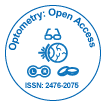Nosso grupo organiza mais de 3.000 Séries de conferências Eventos todos os anos nos EUA, Europa e outros países. Ásia com o apoio de mais 1.000 Sociedades e publica mais de 700 Acesso aberto Periódicos que contém mais de 50.000 personalidades eminentes, cientistas de renome como membros do conselho editorial.
Periódicos de acesso aberto ganhando mais leitores e citações
700 periódicos e 15 milhões de leitores Cada periódico está obtendo mais de 25.000 leitores
Indexado em
- Google Scholar
- RefSeek
- Universidade Hamdard
- EBSCO AZ
- Euro Pub
- ICMJE
Links Úteis
Diários de acesso aberto
Compartilhe esta página
Abstrato
Knowledge about Cataract and its Risk Factors among an Adult Population in the Cape Coast Metropolis, Ghana
Abdul-Sadik A, Abdul-Kabir M, Akowuah PK, and Forfoe S
Objective: The aim of the study was to assess the level of knowledge about cataract and its risk factors among an adult population in the Cape Coast metropolis, Ghana.
Method: A descriptive cross-sectional study involving 250 participants. Interview of participants was conducted using a structured questionnaire. The questionnaire was developed following the World Health Organization (WHO) guide on developing knowledge, attitude and practices (KAP) survey.
Results: Majority 52.80% of the participants was males; 54.00% of the participants were unemployed and 59.60% of the participants were either junior high or senior high school educated. Ages of participants ranged from 23 years to 75 years with a mean age of 49.57 years. 85.60% of the participants were familiar with the term ‘cataract’. Over half of the participants defined cataract correctly and were able to identify the most common symptom of cataract. Less than half (44.86%) of the participants correctly identified surgery as the standard treatment for cataract. Less than half of the participants were aware of sunlight (UV) exposure, diabetes, trauma, steroid use, smoking and heredity to each be a risk factor for cataract development. A statistically significant association was found between level of education and knowledge of cataract (OR=4.31, p=0.03332). Participants who had previously undergone cataract surgery were found to be more likely to know about cataract (OR=11.42, p=0.0908).
Conclusion: Overall, over 70% of participants had low knowledge of cataract. There is a dire need for public health educational programs to improve the level of knowledge and awareness in the study population.
Diários por Assunto
- Agro e Aquicultura
- Alimentação e Nutrição
- Bioquímica
- Ciência da Computação
- Ciência de materiais
- Ciencias ambientais
- Ciências Clínicas
- Ciências Farmacêuticas
- Ciências gerais
- Ciências Médicas
- Ciências Sociais e Políticas
- Ciências veterinarias
- Economia e Contabilidade
- Enfermagem e cuidados de saúde
- Engenharia
- Engenheiro químico
- Física
- Genética e Biologia Molecular
- Geologia e Ciências da Terra
- Gestão de negócios
- Imunologia e Microbiologia
- Informática
- Matemática
- Química
Revistas clínicas e médicas
- Anestesiologia
- Assistência médica
- Biologia molecular
- Cardiologia
- Cirurgia
- Dermatologia
- Diabetes e Endocrinologia
- Doenças infecciosas
- Enfermagem
- Fisioterapia e Reabilitação
- Gastroenterologia
- Genética
- Hematologia
- Imunologia
- Medicamento
- Medicina Reprodutiva
- Microbiologia
- Nefrologia
- Neurologia
- Odontologia
- Oftalmologia
- Oncologia
- Ortopedia
- Pediatria
- Pesquisa Clinica
- Pneumologia
- Psiquiatria
- Toxicologia

 English
English  Spanish
Spanish  Chinese
Chinese  Russian
Russian  German
German  French
French  Japanese
Japanese  Hindi
Hindi